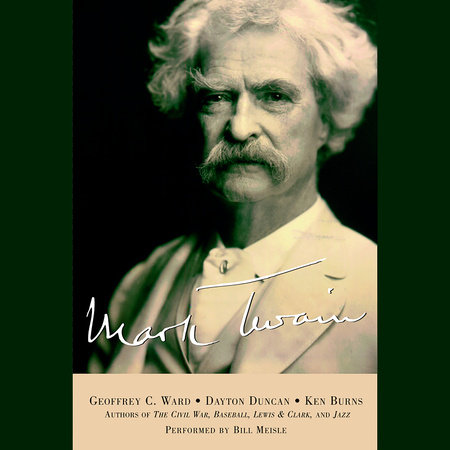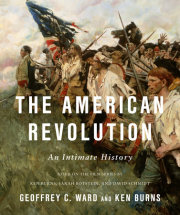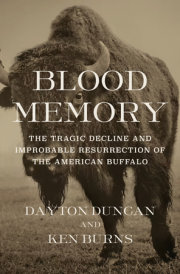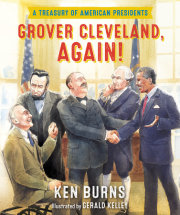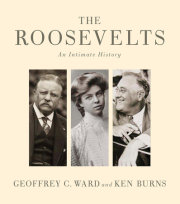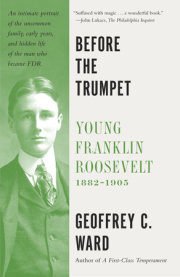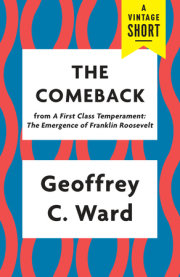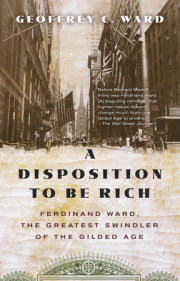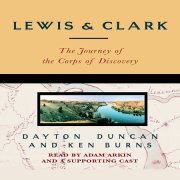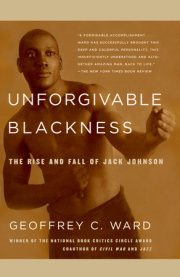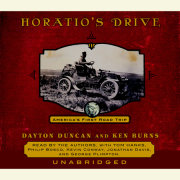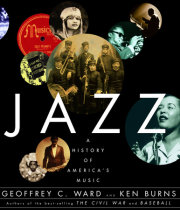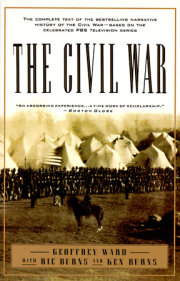I was born the 30th of November, 1835, in the almost invisible village of Florida, Monroe County, Missouri. . . . The village contained a hundred people and I increased the population by 1 per cent. It is more than many of the best men in history could have done for a town. . . . There is no record of a person doing as much—not even Shakespeare. But I did it for Florida, Missouri, and it shows I could have done it for any place—even London, I suppose.
—Chapters from My Autobiography, 1906Samuel Clemens was born in a two-room rented shack some thirty-five miles southeast of Hannibal in Florida, Missouri, the fourth son and the sixth of seven children born to John Marshall and Jane Lampton Clemens. One infant son had died before Sam’s birth—only four of the children would survive to adulthood—and Sam, born two months premature, was so thin and sickly, his mother remembered, that “I could see no promise in him.” But Halley’s comet had blazed in the sky the night of his birth, and she clung to the hope that it might be a bright omen for her baby’s future. He was christened Samuel Langhorne Clemens—Samuel was his paternal grandfather’s name, Langhorne the family name of old friends of his father’s—but in his early years, because of his size and fragility, everyone called him “Little Sammy.”
His health was just one of his parents’ worries. John Marshall Clemens was a merchant and lawyer, descended from a prominent Virginia family, concerned always with keeping up appearances but chronically unable to make a go of things. Like thousands of other ambitious young men of his time and place, he moved westward with his growing family again and again—five times in a dozen years—betting that first one raw frontier settlement and then another would flourish and he with it. He had managed along the way to buy more than seventy thousand mountainous acres of pine forest in Tennessee, which he believed would one day make his family rich beyond their dreams, but in the interim none of his plans ever quite worked out. He was always well respected by his neighbors and warm and loving toward his eldest daughter, Pamela, but toward his sons he remained “stern, unsmiling,” according to Sam. “My father and I,” he wrote, “were always on the most distant terms when I was a boy—a sort of armed neutrality, so to speak.” He remembered that he never saw his father laugh.
Jane Clemens was different. “My mother [was] very much alive,” Sam would remember, “fond of excitement, fond of novelties, fond of anything going that was of a sort proper for members of the church to indulge in. . . . Always ready for Fourth of July processions, Sunday-school processions, lectures, conventions, camp-meetings, revivals in the church . . . and never missed a funeral.” She loved dancing and music, too, enjoyed having as many as nineteen cats and kittens underfoot, and delighted in storytelling—“she was the most eloquent person I ever met in all my life,” her son recalled—all qualities he would inherit, along with his mother’s thick red hair.
By 1839, when Sam was four, it had become clear even to John Clemens that Florida, like all the other outposts he had tried, was never going to prosper, and he moved his family once again, this time to the Mississippi River town of Hannibal. Its future looked bright. It was already home to one thousand people; three steamboats came and went each day; there was even talk of a railroad. Clemens bought a small hotel, called the Virginia House, just one hundred yards from the riverfront, but he would suffer disappointments here, too: the town did grow but too slowly to provide enough guests to keep his hotel going. He borrowed money to stock a dry-goods store that also went under; struggled to support his family on the meager fees he earned as a justice of the peace; and finally pulled his eldest son, Orion, out of school and packed him off downriver to St. Louis to learn the printer’s trade so that he could help keep the family afloat. A distant cousin bought a narrow lot on Hill Street and allowed Clemens to build on it the house Sam visited in his old age; but when Sam was eleven, the family had to sell off most of its furnishings to pay its debts and moved across the street to rooms above a pharmacy, where Jane did the cooking for the owner’s family in lieu of rent.
Jane Clemens constantly worried about money as her family teetered between near-prosperity and genteel poverty. And although Sam’s health slowly improved, she had to endure the death of two more children—a daughter, Margaret, and then a son, Benjamin—in the space of three years. When Benjamin died, she had six-year-old Sam touch the head of his older brother’s corpse in farewell—an experience that gave him terrifying nightmares and led him to believe himself somehow responsible for his sibling’s death.
Nonetheless, Sam remembered Hannibal as “a boy’s paradise.” “In [Hannibal] when I was a boy,” he remembered, “everybody was poor but didn’t know it; and everybody was comfortable and did know it.” In the nearby oak forests, he and his young friends pretended to be Indians or pirates, Robin Hood and his Merry Men, and, later, treasure hunters like the hopeful young men who began streaming through Hannibal after gold was discovered in California. The boys explored a deep limestone cave where the corpse of a fourteen-year-old girl was preserved for a time in a copper cylinder, and where a local ne’er-do-well named Injun Joe was said once to have gotten lost, surviving only on bats. They spent whole days alone on an island in the Mississippi, fishing, smoking corncob pipes and an especially rank brand of cigars known locally as “Garth’s damndest,” inventing elaborate pranks to play on the townspeople, and swimming naked in the big river. Nine times Sam was pulled from the water in what he recalled as “a substantially drowned condition.” His mother tried to laugh off the narrow escapes by telling him, “People who are born to be hanged are safe in water.”
One of Sam’s closest boyhood friends was Tom Blankenship, the son of the town drunkard, who lived not far from the Clemens home in a dilapidated old house. “He was ignorant, unwashed, insufficiently fed,” Clemens wrote later, “but he had as good a heart as ever any boy had.”
His liberties were totally unrestricted. He was the only really independent person—boy or man—in the community, and by consequence he was tranquilly and continuously happy and was envied by all the rest of us. We liked him; we enjoyed his society. And as his society was forbidden us by our parents the prohibition trebled and quadrupled its value, and therefore we sought and got more of his society than of any other boy’s.After dark, whenever Sam heard Tom’s secret catcall, he would slip out the bedroom window for a night of adventures. But even without Tom Blankenship’s influence, Sam was restless and high-spirited. He considered going to church a punishment and frequently skipped the evening prayer services his mother ordered him to attend—though he memorized Bible verses to convince her he had, in fact, showed up. Sam objected especially to the sermons that “dealt in limitless fire and brimstone, and thinned the predestined elect down to a company so small as to be hardly worth saving,” but he absorbed enough strict Presbyterianism that late-night thunderstorms seemed to his vivid imagination to be God’s warning to him to mend his ways:
With every glare of lightning I shrivelled and shrunk together in mortal terror, and in the interval of black darkness that followed I poured out my lamentings over my lost condition, and my supplications for just one more chance, with an energy and feeling and sincerity quite foreign to my nature. But in the morning I saw that it was a false alarm and concluded to resume business at the old stand and wait for another reminder.He loved to read—
Robinson Crusoe and
The Arabian Nights were special favorites—and was an excellent speller, but he was otherwise a mediocre student who often played hooky and once stowed away on a steamboat before being caught and returned to his home. “You gave me more uneasiness,” his mother told him, “than any child I had.”
For several months each summer, she sent him—along with a favorite cat or two carried in a basket—to the farm of his well-to-do uncle John Quarles. There, he and his cousins scoured the woods and fields for wild berries, gorged themselves on his aunt’s country cooking, and spent as much time as they could among the cabins in which his uncle’s thirty slaves lived. “All the negroes were friends of ours,” Clemens wrote of his boyhood in slaveholding Missouri, “and with those of our own age we were in effect comrades. I say in effect [because] we were comrades and yet not comrades; color and condition interposed a subtle line which both parties were conscious of and which rendered complete fusion impossible.” Among the African-Americans Sam knew best were a woman named Aunt Hannah, who seemed so old to him and his playmates that they believed she must have known Moses; a slave girl his own age named Mary Quarles, who was his closest companion at his uncle’s farm; and Jerry, a twelve-year-old boy who, when his owners were not looking, liked to climb on the woodpile and lampoon the local preacher. “You tell me whar a man gits his corn-pone,” Jerry liked to say, “en I’ll tell you what his ’pinions is.”
But above all, Sam remembered “Uncle Dan’l,” his “good friend, ally and adviser . . . whose sympathies were wide and warm,” who taught him to sing the spirituals and jubilees he would love throughout his life, and in the evenings, around the dying kitchen fire, loved to tell a ghost story with a startling surprise ending that Sam would many years later turn into one of his most effective performance pieces, “The Golden Arm.” “It was on the farm that I got a strong liking for [Uncle Dan’l’s] race,” Clemens would write as an old man, “and my appreciation of certain of its fine qualities. This feeling and this estimate have stood the test of sixty years and more and have suffered no impairment. The black face is as welcome to me now as it was then.”
That appreciation grew slowly, Clemens recalled.
In my schoolboy days I had no aversion to slavery. I was not aware that there was anything wrong about it. The local papers said nothing against it; the local pulpit taught us that God approved it, that it was a holy thing, and that the doubter need only look in the Bible if he wished to settle his mind—and then the texts were read aloud to us to make the matter sure; if the slaves themselves had an aversion to slavery they were wise and said nothing.As a young boy, Sam saw his father administer a beating to Jennie, the Clemenses’ only slave, for talking back to her mistress; later the boy wept when she was sold down the river. His father sold other slaves as well, once exchanging a man remembered only as “Charley” for ten barrels of tar, to be delivered on or before the following Christmas. And in 1841 he served on a circuit court jury that sentenced three abolitionists to twelve years in jail for daring to help five slaves flee toward Canada and freedom. Sam himself looked on at the age of ten as a white overseer hurled a chunk of iron ore at a slave “for merely doing something awkwardly” and killed him. “Everybody seemed indifferent about it—as regards the slave,” he wrote, “though considerable sympathy was felt for the slave’s owner, who had been bereft of valuable property by a worthless person who was not able to pay for it.” One of his most lasting childhood memories was of a dozen black men and women chained together, waiting to be shipped downriver to the slave market at New Orleans. “Those,” he said, “were the saddest faces I have ever seen.”
In 1847, John Clemens seemed finally to be on the brink of the success that had always eluded him. He was the leading candidate to become clerk of the county court, a job that promised at last to provide him with both the dignity and the steady income he’d been seeking for so long. But he was caught in a sleet storm while campaigning and developed a fatal case of pneumonia. “Cling to the land and wait,” he told his family from his deathbed; “let nothing beguile it away from you.” Far from being a blessing, the land in Tennessee would become a “curse” for his family, his son wrote later, because it always gave them the sense of being “prospectively rich” while they were actually “condemned . . . to a long and discouraging struggle with the world for a livelihood.”
Orion, ten years older than Sam and now the head of the family, was already sending home what money he could from St. Louis. But to make ends meet, Jane Clemens now had to take in boarders in their rented quarters. Sam’s sister Pamela began giving piano lessons. It was “pretty tough sledding,” Sam remembered, and he, too, would eventually be called upon to help. “From the time that my father died, March 24, 1847, when I was past eleven years old, until the . . . first days of 1857,” he remembered, “I worked—not diligently, not willingly, but fretfully, lazily, repiningly, complainingly, disgustedly, and always shirking the work when I was not watched. The statistics show that I was a worker about ten years.” He was exaggerating but only slightly. He stayed in school for at least three years after his father died, but he did hold after-school and summer jobs—as an errand boy, a grocery clerk, and an apprentice to the town blacksmith—before he, too, had to leave school and go to work at the Missouri Courier as a printer’s apprentice. The editor and proprietor of the paper, he remembered, “allowed me the usual emolument of the office of apprentice—that is to say board and clothes, but no money. The clothes consisted of two suits a year, but one of the suits always failed to materialize and the other suit was not purchased so long as [the proprietor’s] old clothes held out. I was only about half as big as [he was], consequently his shirts gave me the uncomfortable sense of living in a circus tent, and I had to turn up his pants to my ears to make them short enough.”
Then, in the spring of 1850, he got a job at the
Hannibal Journal, now owned by his older brother. Orion Clemens shared many of his younger brother’s qualities—energy, restlessness, excitability—but none of his genius or extraordinary powers of concentration. He was “as unstable as water,” Sam remembered, “the strangest compound that ever got mixed in a human mold. . . . He woke with an eagerness about some matter or other every morning; it consumed him all day; it perished in the night and he was on fire with a fresh new interest next morning before he could get his clothes on. He exploited in this way three hundred and sixty-five red-hot new eagernesses every year of his life.” His eagerness never seemed to pay off; over the course of the two years Sam worked for the
Journal, Orion was not once able to come up with the three and a half dollars a week he had promised his younger brother.
But Sam made the most of the experience. He had discovered that he liked to write: crude light verse as well as rough-hewn humorous sketches under the pseudonym of W. Epaminondas Adrastus Blab—anything, he later said, “to make the paper lively.” Once, left in charge while Orion was out of town, he poked heavy-handed fun at some of the town’s leading citizens, including the high-strung editor of a competing paper, who was already the object of town gossip for having attempted suicide after being jilted by a girlfriend. Like nearly everything else from his boyhood, Clemens would later turn the incident into a story:
For once the Hannibal Journal was in demand—a novelty it had not experienced before. The whole town was stirred. Higgins dropped in with a double-barrelled shot-gun early in the forenoon. When he found that it was an infant (as he called me) that had done him the damage, he simply pulled my ears and went away. . . .
[Orion] was very angry when he got back—unreasonably so, I thought, considering what an impetus I had given the paper, and considering also that gratitude for his preservation ought to have been uppermost in his mind, inasmuch as by his delay he had so wonderfully escaped dissection, tomahawking, libel, and getting his head shot off.“My literature attracted the town’s attention,” Sam later remembered, “but not its admiration.”
He was seventeen in the spring of 1853, and both Hannibal and his brother’s failing newspaper now seemed too confining. After gravely promising his mother not to drink or gamble, Sam packed his bags and set off to see more of the world. It was the beginning of a lifetime of wandering. “All I do know or feel,” he would write his mother a few years later, “is that I am wild with impatience to move—move—
Move! . . . Curse the endless delays! . . . I wish I never had to stop
anywhere a month.”
He found work in St. Louis first, setting type for the
Evening News. Then, with a few coins in his pocket and a ten-dollar bill sewn into his coat lining, he boarded a train for the first time and took it all the way to New York. There he earned four dollars a week working in a print shop, spent his evenings devouring the books in the printer’s library, and tried to adjust to life in a big city. In one of a number of letters Orion printed in his newspaper, he reported home:
In going to and from my meals, I go by the way of Broadway—and to cross Broadway is the rub—but once across it is the rub for two or three squares. My plan—and how could I choose another, when there is no other—is to get into the crowd and when I get in I am borne and rubbed and crowded along, and need scarcely trouble myself about using my own legs; and when I get out it seems like I had been pulled to pieces and very badly put together again.He soon moved on to Philadelphia, where he visited the grave of Benjamin Franklin—a hero to him and Orion because Franklin, like them, had begun his career as a printer’s apprentice—and earned a reputation as a swift and accurate compositor for the
Inquirer. He spent a long weekend in Washington, D.C., where he found the broad avenues impressive but not the United States senators, “who give the people the benefit of their wisdom and learning for a little glory and eight dollars a day.”
His views were still those of a small-town Missouri boy far from home: Philadelphia was filled with far too many “abominable foreigners,” he told his mother, and he could not get used to the presence of free African-Americans. “I reckon I had better black my face,” he wrote, “for in these Eastern States niggers are considerably better than white people.”
By the spring of 1854, Sam had had enough of life in the East. He had kept his pledge to his mother not to drink or gamble, but he had managed to send her only a single dollar from his earnings, and now had no home to which to return. His mother and younger brother, Henry, had left Hannibal and moved first to Muscatine, Iowa, and then to Keokuk, where Orion and a new bride now lived and where Orion had opened a print shop. Sam worked there until he realized that his brother would once again be unable to make good on the promise of a weekly salary, then arranged for his first paying job as a writer—a series of travel letters at five dollars each for the
Keokuk Post, under the pen name of Thomas Jefferson Snodgrass—before moving on again to St. Louis, Chicago, and Cincinnati.
In February of 1857, at the age of twenty-one, Sam boarded the steamboat
Paul Jones bound for New Orleans with the grand ambition of booking passage to Brazil to make his fortune trading in coca plants. Coca was a “vegetable product of miraculous powers,” he had been told, “so nourishing and so strength-giving that the natives of the mountains of the Madeira region would tramp up-hill and down all day on a pinch of powdered coca and require no other substance.” It was the first of a host of get-rich-quick schemes that would capture his imagination over the coming years. But on his way down the river, an older dream was reawakened—a dream that would permanently alter the direction of his life.
Copyright © 2001 by Geoffrey C. Ward, Dayton Duncan, and Ken Burns. All rights reserved. No part of this excerpt may be reproduced or reprinted without permission in writing from the publisher.

